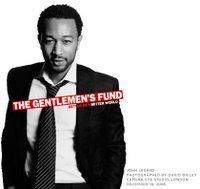News: There was a major brothel bust in Rhode Island. The details about the laws surrounding prostitution and such are (sarcasticaly) interestering. Also, it is just a current and eye opening story. This is from JFCI's blog...
Friday, April 27, 2007
Rhode Island's Sex Trade Raises Concerns
The article below was on NPR earlier this week ....
..> Rhode Island's Sex Trade Raises Concerns
April 25, 2007 from Day to Day
ALEX CHADWICK, host: For a good time, call Rhode Island, where it turns out prostitution is legal as long as it happens indoors. This legal quirk made the news recently when federal officials raided 20 brothels across the northeast. But because of state law, they could not charge anyone from Rhode Island. Nancy Cook of member station WRNI has more.
NANCY COOK: Felicia Delgado(ph) is driving through the city of Pawtucket, Rhode Island. She's looking at Payne Park, known for its drinking, drugging and prostitution.
(Soundbite of car horn honking)
Ms. FELICIA DELGADO (Outreach Worker; Former Prostitute): What's up, mommy?
COOK: Delgado is an outreach worker and a former prostitute. Now she helps Rhode Island women get out of the business.
Ms. FELICIA DELGADO (Outreach Worker, Former Prostitute): It's not New York. It's not big, fancy prostitution. Like, I'm used to doing the streets of the Bronx, you know, where it's live, but it's not as lively like that. It's real hidden.
COOK: Prostitution is hidden here because state law only bans streetwalkers. Cities across the state say they're seeing more and more brothels that advertise as massage parlors. The city of Providence has tried to shut down these places with the laws it has, code violations or building inspections, but it hasn't had any luck. Providence Mayor David Cicilline worries that Rhode Island is developing a reputation.
Mayor DAVID CICILLINE (Democrat, Providence, Rhode Island): Rhode Island is becoming more well-known and as a consequence, Rhode Island is becoming a place where people can engage in human trafficking and acts of prostitution and be protected from criminal prosecution.
COOK: A few Rhode Island lawmakers recently proposed legislation that would have made indoor prostitution a crime, but the bill didn't receive much political support. For the second year in a row, legislators have failed to do anything. The state Senate majority leader, Teresa Paiva Weed, says the lawmakers are mostly concerned about massage parlors staffed by illegal immigrants from Korea or Cambodia who are held against their will. Legislators are less concerned about prostitution in general.
State Senator TERESA PAIVA WEED (Democrat, Rhode Island): It was our position last year that simply modifying the prostitution laws did not address the issue of human trafficking. Rather, it in fact made victims twice of the same individuals that we are allegedly trying to protect.
COOK: She says that's because the illegals working in massage parlors could face deportation if they're caught. Massage parlors and spas are overseen by the State Department of Health, but brothels and prostitution aren't regulated. A University of Rhode Island professor, Donna Hughes, says Rhode Island's prostitution laws are too lax.
Professor DONNA HUGHES (University of Rhode Island): In a few counties in Nevada, it is legalized, but along with legalization comes regulation, and in Rhode Island, there's no regulations or oversight of it at all.
COOK: The brothels have managed to stay out of the public glare. Providence legislator Edith Ajello says this is because Rhode Islanders traditionally haven't seen prostitution as a crime.
Ms. EDITH AJELLO (Legislator, Providence): There are people who live in Rhode Island and have lived in Rhode Island who've thought that what happens behind closed doors between consenting adults was none of our business as long as there was no victim. I think many people have seen indoor prostitution as a victimless crime.
COOK: There's no doubt that locals are making money off the sex trade. Providence's alternative weekly newspaper rakes in about $20,000 a month in various sex-related advertising. A former Providence mayor rents downtown storefront to a well-known brothel. Bally(ph) Day Spa is right next to a trendy furniture store and a block from city hall.
For NPR News, I'm Nancy Cook in Providence







